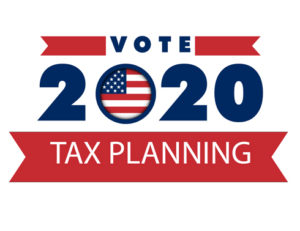Trump vs. Clinton and the Tax Plans We Could End Up With

If someone asked you to explain the differences between the two presidential candidates’ tax plans would you be able give a clear explanation? If you answered “no” most likely you aren’t alone. It’s not uncommon during a presidential election for most voters to be confused at what the candidates are actually promising or proposing. With so much back-and-forth rhetoric, it’s hard to know what each candidate really has in store.
According to Donald Trump, he wants to reduce taxes for everyone in America, especially middle-income Americans. According to numerous reports, Mr. Trump’s plan would reduce the tax system to just three tax brackets, with the top rate dropping from its current mark of 39.6 percent down to 33 percent. He also said that the wealthy would still pay their fair share, but not so much that it hinders the country’s ability to compete.
On the other hand, Hilary Clinton has yet to describe in detail what her tax plans for the middle class would be, or how they would be affected. However, she has made it clear that she wants to raise taxes on the ultra wealthy. Mrs. Clinton has stated that she wants anyone who makes more than a million dollars a year to pay a minimum of 30 percent, whether it’s from income or from capital gains. She would also like anyone who makes more than $5 million to pay an extra 4 percent.
Under Mrs. Clinton’s plan the top 1 percent would end up paying three-fourth’s of the additional taxes being collected, whereas under Mr. Trump’s plan the wealthy would be getting a tax cut of about 5.3 percent. Meantime, both candidates reportedly agree on eliminating the carried interest loophole that offers hedge fund managers a heavily discounted tax rate. Lastly, Mr. Trump wants to eliminate the estate tax completely, while Mrs. Clinton wants to raise it, as well as lower the threshold at which it starts to apply.
http://www.npr.org/2016/09/12/493573601/do-hillary-clinton-and-donald-trumps-tax-proposals-add-up
Jory Mack- Reno Solar
Jory Mack, Reno Solar, interview transcript, by Alan Olsen for The American Dreams Show: Alan Olsen: Can you share a little about your background and how your company, Reno Solar came about? Jory Mack: I was working at a gym and had a friend that, that wanted to be partners. I basically I quit the…
Tax Planning December 2020: Biden vs Trump
Tax Planning December 2020: Biden vs Trump Transcript: There is a lot going on in terms of to sorting out the Presidential election right now. Regardless of who becomes President, January 1st is approaching fast and there are still opportunities to take action to do some tax planning before year end. When we’re looking between…
The New Normal for a Successful Mindset
What is the new normal for a successful mindset? The pandemic has forced us to think differently and to quickly adapt to changes we would have previously considered very unlikely. It is not good luck, rather a strong and responsible leadership ethic of any company fully prepared to change to a Work-from-home scenario when the…
Tax Planning In November 2020
Tax planning in November 2020. Depending on who gets into office, there will be notable differences in philosophy of the direction things are going. After a year of unprecedented government spending amid the coronavirus pandemic, how revenue for the government will be collected into the future will matter. We’ve already seen several states take on…




